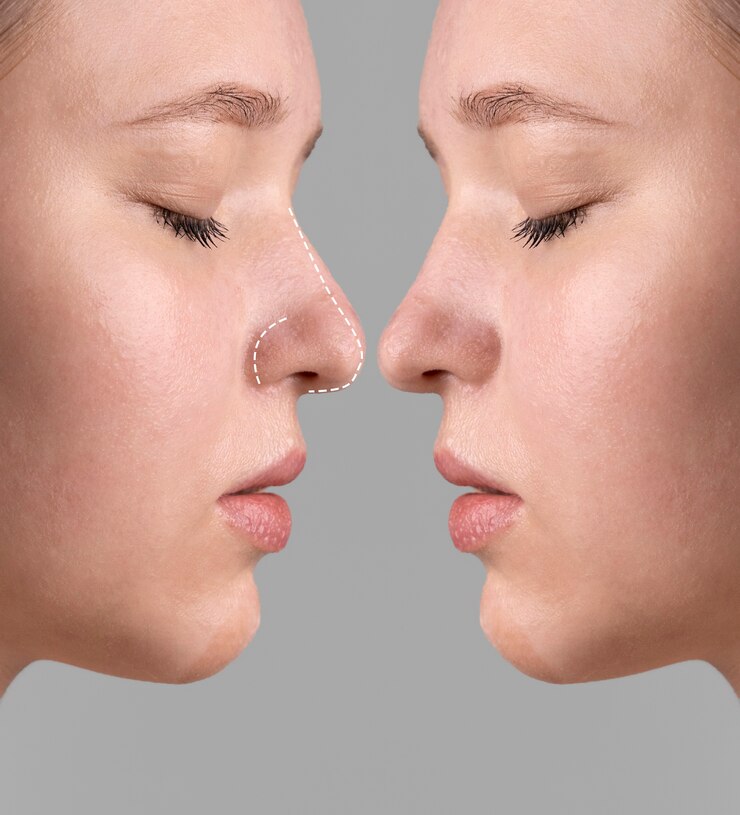
Sometimes, having a nose that doesn’t look or function the way you’d like can leave you wondering, “Do I need a nose job?” After all, your nose is literally at the center of your face, and feeling unhappy with its appearance can have a negative impact on your self-esteem. If you’re unsure about whether rhinoplasty might be right for you, here are three common signs that it could be worth exploring.
1. Your Nose Has Been Broken
If you’ve ever had your nose broken, it might have healed in a way that feels uneven, crooked, or out of proportion. Dealing with the physical and emotional aftermath of a broken nose can be frustrating. A nose job could help restore your nose to its former appearance by straightening the bridge and improving alignment, helping you feel more like yourself again.
2. Breathing Problems Due to Nasal Issues
Rhinoplasty isn’t just about aesthetics—it can also address medical concerns. If you’re dealing with issues like a deviated septum or a collapsed nasal valve, these conditions can affect your ability to breathe comfortably. A nose job can correct these structural problems. If you suspect this might be the case for you, reach out to your doctor to learn more about your options and the best path forward.
3. A Loss of Self-Confidence
If you’re constantly feeling self-conscious about the size, shape, or appearance of your nose, it can affect your overall confidence and self-esteem. In this case, a rhinoplasty procedure might help you feel more positive about your reflection and boost your self-assurance. A qualified plastic surgeon can walk you through the process, explain what to expect, and give you an idea of the costs involved.
Still Thinking, “Do I Need a Nose Job?”
If you’re still unsure, it might help to know that rhinoplasty can address a variety of concerns, including:
– A bulbous or droopy tip
– A prominent nasal hump on the bridge
– A nose that’s too wide or narrow
– An overly prominent or under-prominent nose
This list isn’t exhaustive, so if you’re curious about whether your specific concerns can be addressed, scheduling a consultation is the first step. During this appointment, your surgeon will ask about your goals, review your medical history, and create a plan tailored to your unique needs.
Rhinoplasty is typically an outpatient procedure, which means you’ll likely go home the same day. Recovery time usually takes one to two weeks, with some swelling and bruising afterward—both of which are normal and temporary.
Next Steps
If you’ve been debating rhinoplasty, talking to an experienced surgeon can give you clarity and help you decide whether it’s the right choice for you. From addressing cosmetic concerns to resolving functional issues, a nose job can provide both physical and emotional benefits, helping you feel more comfortable and confident in the process.